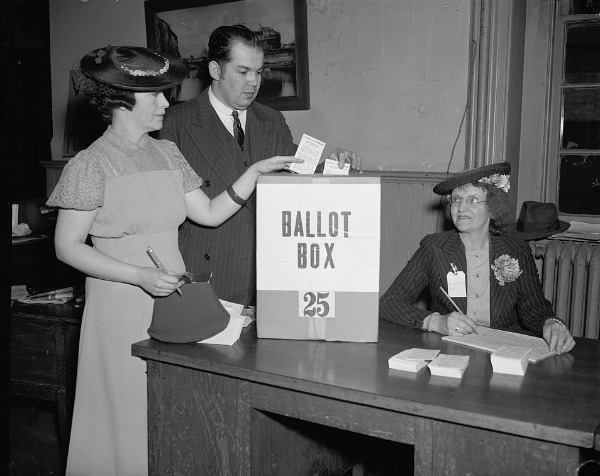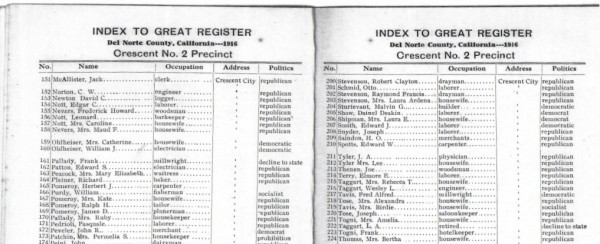Did Your Ancestors Vote?
It’s Election Day in the U.S. Today, millions of Americans will head to the polls to cast their votes for President. This presidential election between Republican candidate Donald Trump and Democratic candidate Hillary Clinton will certainly go down into the history books and may possibly result in the country’s first female president. As voters take to the polls, we take a minute to remember that many of our ancestors may have also participated in elections during their lifetimes.
Did your ancestors vote? Voter registration records can be a valuable genealogy resource to help supplement what information you have or provide you with new clues to pursue.
Image: Library of Congress
When searching for voter registration records, it’s important to remember the history of voting rights in the country. In the United States, all registered voters must be U.S. citizens. Throughout American history, different restrictions have prevented many different groups of people from voting. In 1870, the passing of the 15th Amendment prohibited the government from denying citizens the right to vote based on race, color or previous status as a slave. In 1920, the ratification of the 19th Amendment finally granted women the right to vote.
Keep in mind that before the ratification of the 19th Amendment, suffrage laws varied across several states. So if you know where a female ancestor may have lived before 1920, it’s possible you may find her in the state’s voter registration records.
Image: Del Norte County, CA (1916), CAGenWeb
Why should you search for voter registration records?
This often overlooked resource can be the source of valuable information for your family tree. Not only will these contain the first and last names of your ancestors, but also their occupation, address and political affiliation. Having knowledge of your ancestors’ address at a specific point in time is great to help you fill in those gaps between censuses.
Some records may even show the naturalization date of your ancestor, which can either help confirm information you already have or provide you with a new path to research.
Since these records are often ordered by precinct, you may even be able to find the names of other family members who lived nearby.
Have you found voter registration records for your ancestors? What discoveries did you make?









 Genealogy Discussions
Genealogy Discussions Genealogy Projects
Genealogy Projects Popular Genealogy Profiles
Popular Genealogy Profiles Surnames
Surnames The Geni Blog
The Geni Blog The World Family Tree
The World Family Tree